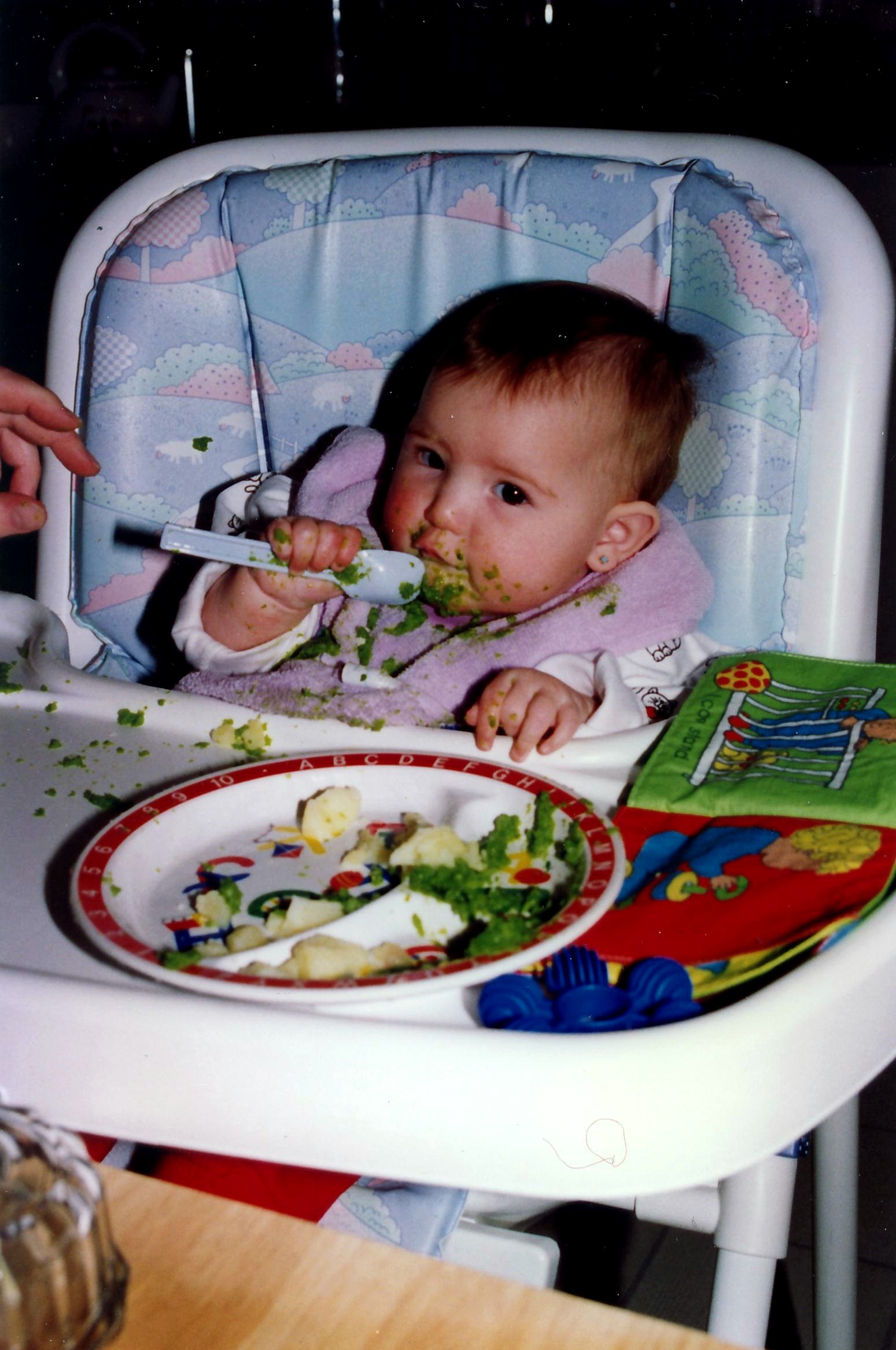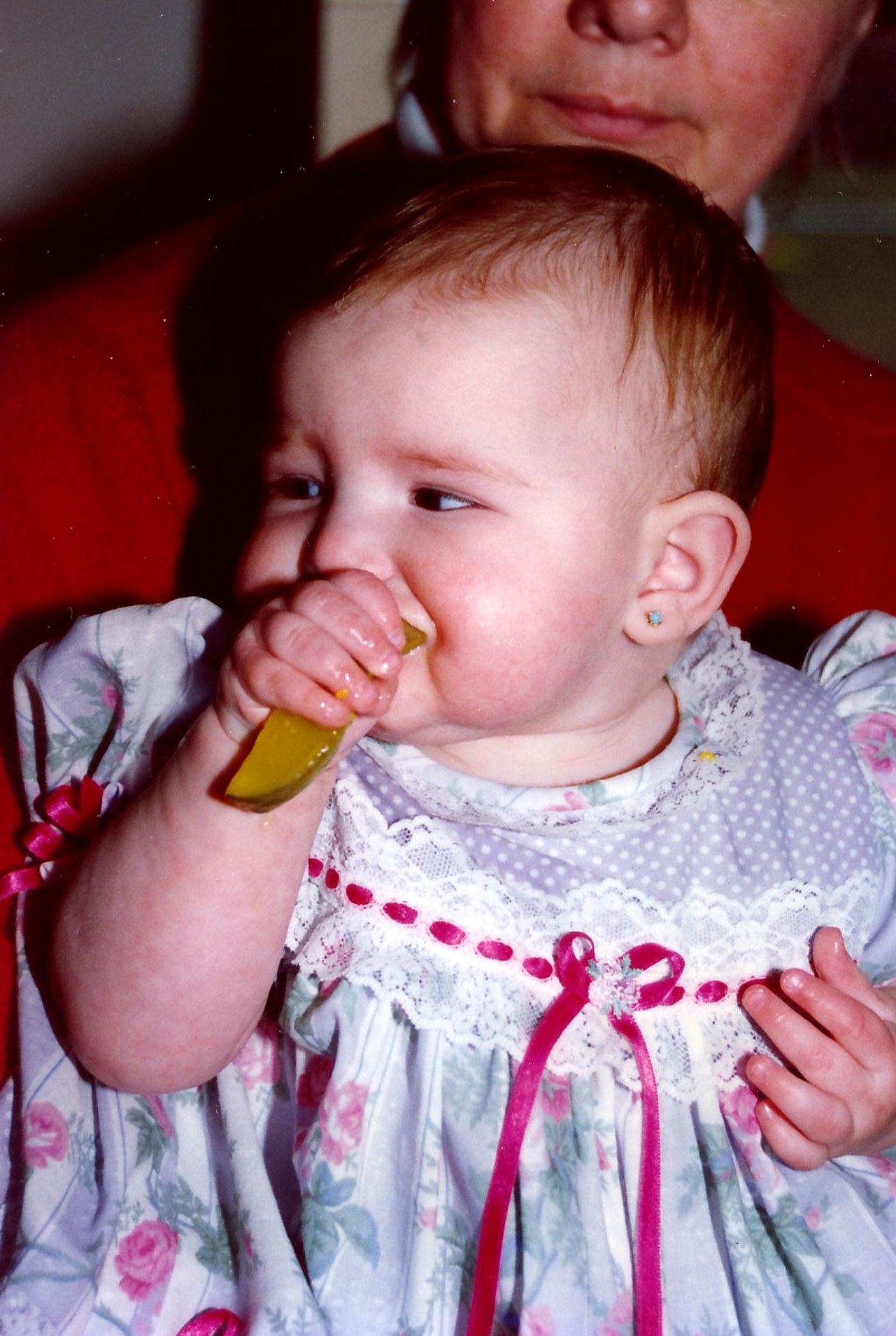Starting Solids
(Download this handout as a .PDF)
Parents of newborns will receive much advice about feeding from well-meaning people. Unfortunately, much of this advice is more complicated than necessary. In fact, starting solids is quite easy and fun! It should not be a source of stress or panic for parents.
All infants should be fed only breast milk or formula for the first four to six months. Water is optional, but not usually necessary. Solids are generally not introduced until four to six months. Whole cow’s milk is generally started at about 12 months of age.
Solids should be introduced between 4 and 6 months of age.
Many parents are now making their own baby food, right off their own plate at mealtime, for some or all meals. Homemade baby food has several advantages. It is less expensive to make your own food, there is less waste, and it tastes better. Also, it is easier to include the infant in your family’s mealtime, which has benefits for social development. Commercial baby food in a jar is acceptable nutritionally, but it is expensive and often not nearly as tasty as your own homemade food.
To make your own baby food, cook it until soft (or use your food right off your own plate!). Do not add salt, butter or milk, but you may soften it with water or the baby's milk. Spices are fine; teach your baby to like the same foods that you do!
Puree in an electric blender or grinder, or mash with a fork, so that the baby won't choke on the pieces. Nuk sells a “Mash and Serve Bowl” for about $10, to mash soft food easily by hand; you can even take it with you to a restaurant.
After your infant has had some experience with several different foods, you can begin to offer three meals a day, with two or three different foods at each meal. Babies should be taking solid food 3 times a day by 6 months of age at the latest (earlier if you wish). Allow your child to experiment with different flavors and textures. Let her eat her fill of each food, as she pleases, then you may finish the meal with breast milk or formula.
Fruit juice is not recommended for infants, because it contains only sugar (and too much of it!). (Prune or pear juice to treat occasional constipation is an exception.)
In the past, pediatricians recommended that solids be introduced very slowly and carefully, for fear of food reactions and allergies. And several foods, such as peanuts and fish, were not recommended until 12 months. But recent research shows benefits to earlier introduction of food previously forbidden; in particular, the AAP now recommends introducing small amounts of ground peanuts by 6 months, and even as young as 4 months if the baby has severe eczema or a family history of peanut allergy. (I don’t recommend commercial name-brand peanut butter, because it contains other ingredients such as sugars and oils that the baby doesn’t need.)
In my years of practice, I almost never see infants have a serious reaction to any newly introduced solid food, after 4 months of age. In general, I am comfortable with any plan parents want to try, as long as the baby is being fed 3 meals a day by 6 months of age.
The only “forbidden” food for an infant is honey. Honey may contain botulism spores, and infants under 1 year are especially susceptible. Even cooking or baking at home will not destroy botulism spores. Only cooking at high heat or pressure will kill the spores, so commercially prepared baked foods such as “honey crackers” or graham crackers are safe for infants. Children over 1 year of age generally may safely eat honey.
At all costs, avoid feeding battles with your child. Let her hold her own spoon by 9 months! Many later problems with eating disorders and obesity may be avoided by allowing the child to trust her own appetite.
-- Copyright © David Epstein MD, 1999, 2004, 2007, 2017





